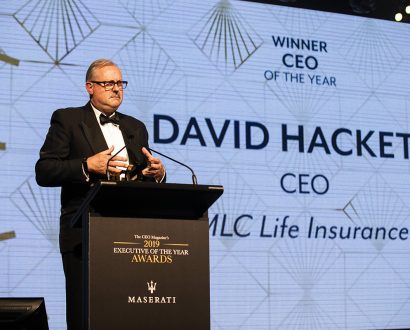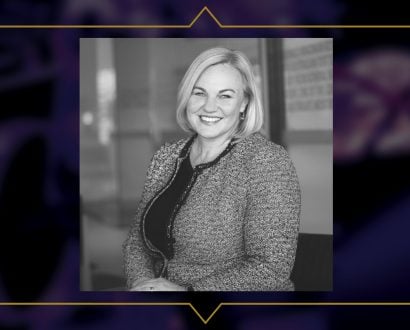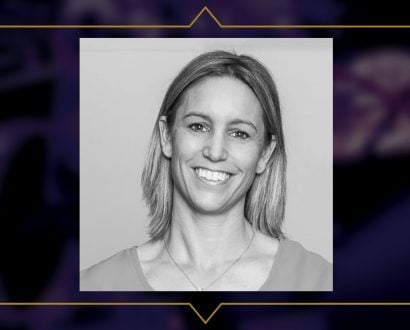From having deep human empathy to showing fearlessness in all situations, the 10 CEO of the Year finalists reveal which qualities they believe are crucial to being an exceptional leader.
Zena Burgess
CEO, Royal Australian College of General Practitioners
“The value I believe is most important, and that I always strive to demonstrate as CEO, is inclusiveness. It is often commented to me as a joke that I treat my EA and the Federal Minister of Health the same way. In truth, everyone is of interest to me and nobody plays an insignificant role, so I treat everyone with respect.
“An exceptional leader remembers details of people’s lives and asks questions about them, showing a genuine concern for their interests and welfare. Taking the time to really listen when someone is answering a question or telling me something, even when I am under pressure to get to a meeting or complete work, ensures I can provide my team with the best possible support in the work. It also helps prevent future issues.
“My scarcest commodity is time, so to be generous with time and care of others is also something I highly value and strive to do.”
David Hackett
CEO, MLC Life Insurance
“Exceptional leaders focus on developing people. They measure their success by the success of the people they lead. They bring their whole selves to the task of leadership and stay true to themselves and their values through times of challenge. They are humble and human, with an inner drive that means they stay strong, calm and focused, and connect to their people and stakeholders at all times.”
Emma Hendry
CEO, Hendry Group
“Above all, I believe that the greatest leaders in our history have been those who can lead with fearlessness in the face of risk. In this pursuit, fearlessness alone is not the factor for success. Exemplary figures like Steve Jobs have shown that this fearlessness is only ever successful through the support and knowledge of the team working alongside you.
“Fearlessness, in this way, does not mean an objection to risk but instead a confidence in your ambitions and attention to detail. With this in mind, I have always encouraged a ‘fail fast and fail often’ approach. Adopting this approach is imperative for leaders of today and to show your staff that it is okay to fail; to learn and to rebuild for success in the next attempt. This is how we can learn together in a transformational environment and that is key to innovating in an impactful and lasting way.”
Fiona Johnston
CEO, UM Australia
“Compassion – to listen to the human, not just the business. Conviction – to drive against the odds. Courage – to lead the way, at times unknown. Curiosity – to stay open and hungry. And patience – it doesn’t happen overnight.”
Bobby Lehane
CEO, CHU Underwriting Agencies
“Empathy, clarity of purpose, insight and self-awareness, as well as exceptional communication skills. Vision and the ability to conceptualise a future very different to the present or the past. Optimism and energy.”
Anthony Nantes
CEO, Wisr
“It’s rarely my own qualities that are important, but rather the ability to leverage a high-performing team, such as what we have at Wisr, to deliver truly exceptional outcomes.”
Andrew Ritchie
CEO, EstimateOne
“Role modelling – encouraging positive actions by first introducing them into your own behaviour.
“Leadership mindset – first, ask where we are going and why; second, ask where we are now; and third, ask ‘what is the best thing to do next?’.
“Development of self and others – every leader has an obligation to continuously develop themselves and others.
“Team first – leaders care about team success, not individual success. In fact, for great leaders these two concepts are so inextricably linked that you couldn’t possibly succeed as an individual unless your team succeeded first.”
Michele Smith
CEO, North Eastern Community Hospital
“Courage, honesty, kindness and a genuine passion for service excellence and the lived experience of the consumer.”
Kim Wethmar
CEO, TravelEdge
“Integrity, honesty, determination, resilience, great communication skills and a real deep empathy for humans.”
John Winning
CEO, Winning Group
“To be the leader who doesn’t ask anything of their team that they wouldn’t be willing to do themselves, who is there by the team’s side when times are great and, more importantly, when times are tough.
“Someone who earns such respect of their team that the team trusts their leader’s judgement over their own and are willing to take direction and act on it even if they think it’s the wrong decision. That’s leadership.”
Read next: Everything you need to know about The CEO Magazine’s Executive of the Year Awards







